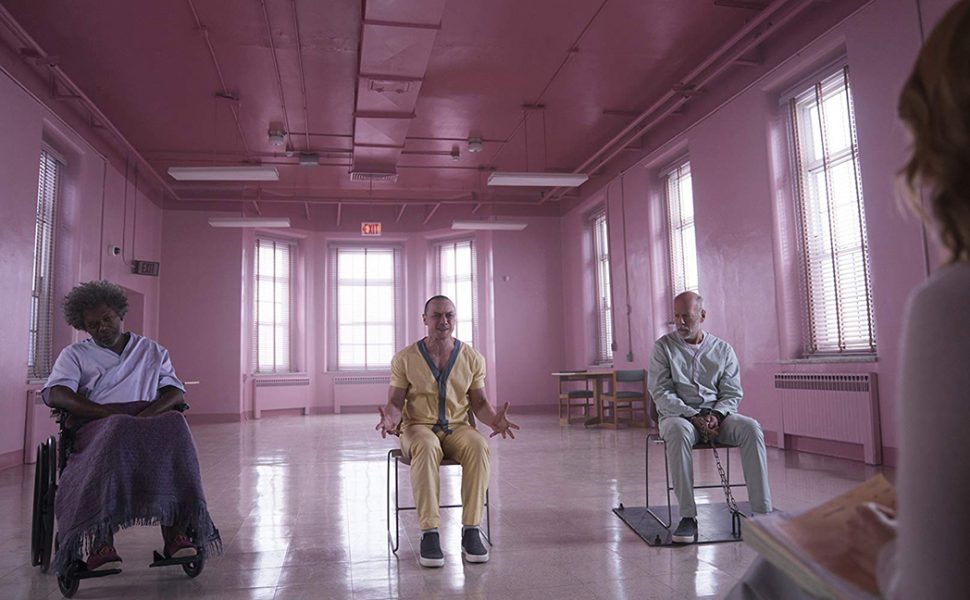“Glass” recently premiered as the third part of M. Night Shyamalan’s Eastrail 177 Trilogy, which began with 2000’s “Unbreakable” and continued in 2017’s “Split.” “Unbreakable” premiered just on the heels of Shyamalan’s wildly successful “The Sixth Sense,” the critical and commercial peak of his career. “Split” premiered two years ago, with Shyamalan’s career having taken a critical beating since the beginning of the 21st century. There’s an expectation that each Shyamalan film will promise something good only to go off the rails at the end. Yet, Shyamalan continues making his movies, invested in his oftentimes unusual stories. “Glass” is no different in some ways. He writes and directs the film, which sometimes buckles under the pressure set up by its predecessors, and by its own narrative.
The central thrust of the film concerns a psychiatrist trying to help three men with seemingly supernatural powers realise that their powers are mere delusions of grandeur. There is Elijah Price (Mr Glass), who was the antagonist of “Unbreakable”. He is a man with osteogenesis imperfect, a disease that renders his bones especially fragile. He is also something of a supernatural mastermind. Convinced that superheroes exist, he spent years trying to find the superhumanly invulnerable David Dunn, the protagonist of “Unbreakable.” Dunn’s superhuman strength puts him on a path with the antagonist of “Split,” Kevin Crumb, a man with 24 personalities, including the animalistic “Beast.” From its inception, “Glass” seems mistitled. Elijah doesn’t appear until a significant portion into the film and doesn’t do anything of note until at least the half-way point. Instead, the film diverts between Dunn and his adult son, Joseph, and Kevin and his personalities and a recent victim of his, Casey. As a result, the film’s focus immediately runs the risk of seeming nebulous, which mirrors its own relationship with its predecessors. The relationship between the three films intrigues. “Split” does not announce itself as a sequel to “Unbreakable.” The former is a psychological quasi-horror while the latter is a superhero thriller film, with a mild action aesthetic. The films only appear linked at the very end of “Split,” when Dunn makes an unexpected appearance. And so, the culmination of the stories immediately promises wavering dividends. “Glass” must exist in multiple planes. It must be different things to different people, and within that dichotomy comes the film’s own narrative oddities, which set it up as being both very much a film for 2019 and very much a film that seems out of place in the now.

